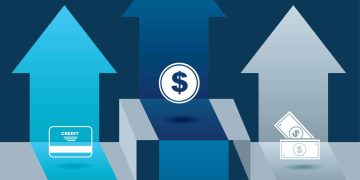Alternatives to personal loans: Discover different solutions

Anúncios
Personal loans are a useful tool for managing unexpected expenses or consolidating debts, but they are not your only option.
If you are looking for a solution that offers more flexibility or something with lower interest rates, it’s important to understand the available alternatives.
So, if you want to learn more about alternatives to personal loans, keep reading to discover the best solutions.
Anúncios
1. Credit cards
Credit cards can be a convenient option among the alternatives to personal loans, especially for those who need quick access to funds.
They are ideal for managing smaller expenses that can be paid off over a short period.
Many credit cards offer an interest-free grace period, making them a cost-effective option if you can pay off the balance before interest starts accruing.
Anúncios
When it’s recommended: Credit cards are best for short-term loans, such as emergency expenses or purchases that you can pay off quickly.
Advantages:
- Flexibility: You can use a credit card for various types of expenses and only pay interest on the amount you spent.
- Rewards programs: Many credit cards offer cashback or reward points for purchases, which can add additional value.
- No collateral needed: Credit cards are unsecured, meaning you don’t need to put up assets, such as your home or car, as collateral.
Disadvantages:
- High interest rates: If you carry a balance, credit cards typically have significantly higher interest rates than personal loans.
- Easy to accumulate debt: The ease of using credit cards can lead to overspending, potentially resulting in high debt.
2. Personal line of credit
A personal line of credit works similarly to a credit card but with lower interest rates.
It provides access to a predefined amount of money that you can use as needed. You only pay interest on the amount you actually withdraw.
When it’s recommended: Personal lines of credit are ideal for ongoing projects or expenses where you don’t need a lump sum upfront, such as home renovations or fluctuating medical bills.
Advantages:
- Interest on what you use: Unlike a personal loan, where you pay interest on the total amount, a line of credit charges interest only on the funds you actually withdraw.
- Lower interest rates: Compared to credit cards, lines of credit usually have lower interest rates, making them a cheaper loan option in the long term.
Disadvantages:
- Qualification requirements: Lenders usually have stricter credit score requirements to approve a line of credit.
- Variable interest rates: Some lines of credit have variable interest rates, meaning your payments can increase over time.
3. Home equity loan or HELOC
A home equity loan or a home equity line of credit (HELOC) allows homeowners to borrow against the value of their property.
A home equity loan provides a lump sum, while a HELOC offers a revolving line of credit, similar to a credit card.
When it’s recommended: These loans are best suited for large expenses, such as home renovations, medical bills, or debt consolidation, especially if you have a considerable amount of equity built up in your home.
Advantages:
- Lower interest rates: Because these loans are secured by your home, they typically have lower interest rates compared to personal loans or credit cards.
- Potential tax benefits: In some cases, the interest on home equity loans may be tax-deductible.
Disadvantages:
- Risk of losing your home: If you don’t repay the loan, you risk losing your home, as it’s used as collateral.
- High upfront costs: Home equity loans often come with high fees and closing costs, making them more expensive initially.
4. Peer-to-peer lending
Peer-to-peer (P2P) lending platforms connect borrowers with individual investors, bypassing traditional financial institutions.
These platforms allow you to borrow money directly from other people, often at competitive rates.
When it’s recommended: P2P loans are a good option for those who may not qualify for traditional loans or are looking for a faster and more flexible lending process.
Advantages:
- Competitive rates: P2P lenders often offer lower rates than banks or credit unions, especially for those with good credit.
- Quick approval: The approval process can be faster than traditional loans, with some funds disbursed in just a few days.
Disadvantages:
- Higher risk for bad credit: Those with poor credit may face higher interest rates, and the loans can still be expensive.
- Limited availability: Not all borrowers will qualify, and some states may have restrictions regarding P2P lending platforms.
5. Payday advance
A payday advance allows you to borrow money against your next paycheck, typically through your employer or a specialized lender.
This option is designed to help you cover short-term expenses until your next paycheck.
When it’s recommended: This solution is ideal for emergency expenses that can’t wait until your next paycheck, such as car repairs or medical bills.
Advantages:
- Quick access to money: Payday advances are usually available within one or two days, providing immediate relief for urgent financial needs.
- No interest: Some employers offer payday advances without charging interest, making them a more affordable option than payday loans.
Disadvantages:
- Short repayment period: Since the advance is deducted from your next paycheck, you may face financial strain during the next pay period.
- Fees: Some payday advance services charge fees that can add up, making this option expensive if used repeatedly.
6. 401(k) loan
A 401(k) loan allows you to borrow from your retirement fund. And it can be an option among the alternatives to personal loans.
The loan is repaid with interest, but the payments go back into your own retirement account.
When it’s recommended: This option should only be considered in situations where you need a significant amount and have no other low-cost loan options. It’s commonly used in emergencies or for debt consolidation.
Advantages:
- No credit check: Since you’re borrowing from yourself, there’s no impact on your credit and no approval process.
- Low interest rates: The interest rates on 401(k) loans are generally lower than other types of loans, and the interest is paid back into your account.
Disadvantages:
- Risk to retirement: Borrowing from your 401(k) reduces the amount available for retirement, and if you don’t repay the loan, it may be treated as a taxable distribution with penalties.
- Repayment risks: If you leave your job, the loan may need to be repaid in full within a short timeframe.
7. Cash-out refinance
A cash-out refinance allows homeowners to refinance their mortgage for a higher amount than they owe and receive the difference in cash.
This can be a way to access funds for large expenses or consolidate high-cost debt.
When it’s recommended: Cash-out refinances are best for homeowners with significant equity who are looking to finance home improvements, pay off debts, or cover large expenses.
Advantages:
- Lower interest rates: Mortgage rates are typically lower than personal loan rates, making this an economical way to borrow money.
- Opportunity for consolidation: You can use the funds to pay off high-interest debts, such as credit cards or personal loans.
Disadvantages:
- Increased mortgage debt: You will increase the total amount owed on your home, which may take longer to pay off.
- Risk of losing your home: As with home equity loans, failure to repay can result in losing your home.
8. Small business loan
A small business loan is designed to help entrepreneurs finance their ventures.
These loans can be used to cover startup costs, expand operations, or improve cash flow.
When it’s recommended: Small business loans are ideal for individuals looking to start or expand a business, purchase equipment, or manage daily expenses.
Advantages:
- Tailored to business needs: Many small business loans are specifically designed to help entrepreneurs succeed, with features such as flexible payment terms.
- Access to larger amounts: Depending on your business plan, you may qualify for a larger loan than a personal loan would provide.
Disadvantages:
- Stricter qualifications: Lenders often require a detailed business plan, good credit, and collateral, which can limit access for new entrepreneurs.
- Risk to personal assets: Many small business loans require personal guarantees, meaning your personal finances could be at risk if your business fails.
Have you discovered the alternatives to personal loans? Take advantage of the tips provided to continue improving your financial life.
We hope you enjoyed the content! Keep following other posts on the site for more information.
Want a great suggestion? Also, read our content explaining how virtual credit cards work!





